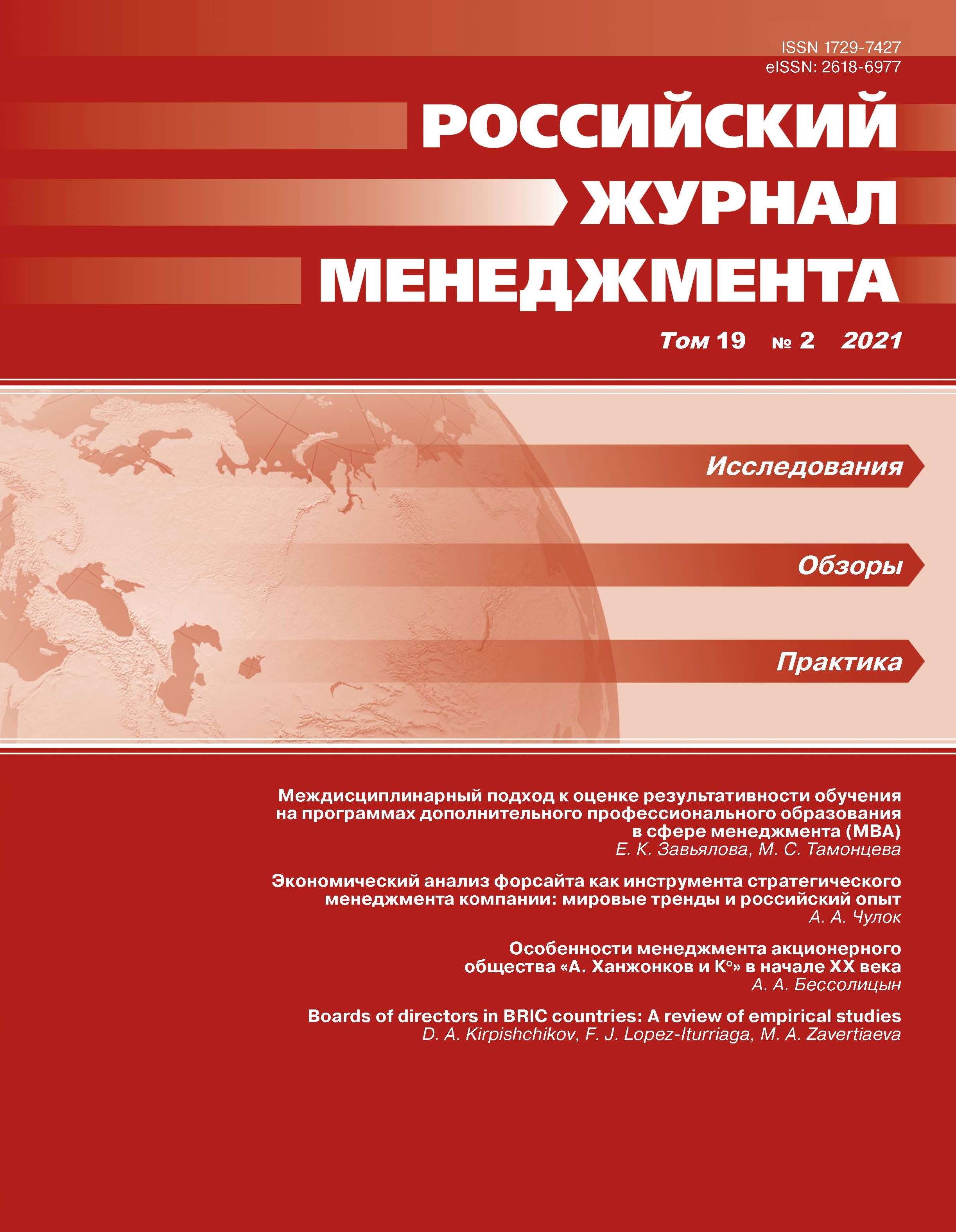Economic analysis of foresight as an instrument of strategic corporate management: World trends and Russian experience
DOI:
https://doi.org/10.21638/spbu18.2021.202Abstract
This article presents the results of a comprehensive research of foreign and Russian studies in the field of corporate foresight, identifies their key research questions, conducts a structural analysis of cases, gives a classification and summarizes characteristics of domestic projects using foresight methods since the 90s of the past century. The search for an effective tool to ensure strategic development and sustainable competitiveness of the company has been the subject of lively academic discussion since the middle of the last century. However, the research landscape is still highly fragmented and is characterized by the presence of several large gaps associated with an integrated approach to the study of the company, taking into account the action of global trends, incentives and patterns of behavior of key stakeholders and the formation of recommendations for the company’s management. One of the platforms uniting various scientific schools is foresight, a tool for shaping the vision of the future, which has been actively used by global corporations for over 70 years and has won wide recognition in the Russian community in recent years. It is shown that the current stage of Russian corporate foresights is in a state of rapid development and in many respects begins to correspond to world trends. The factors influencing the demand of Russian companies for foresight are determined. The author's forecast of possible trends for the development of foresight as a tool for strategic management of the company for the next 10 years has been made.
Keywords:
ecosystem, foresight, corporate foresight, strategic management, planning and forecasting, global trends
Downloads
Downloads
Published
How to Cite
Issue
Section
License
Articles of the Russian Management Journal are open access distributed under the terms of the License Agreement with Saint Petersburg State University, which permits to the authors unrestricted distribution and self-archiving free of charge.





